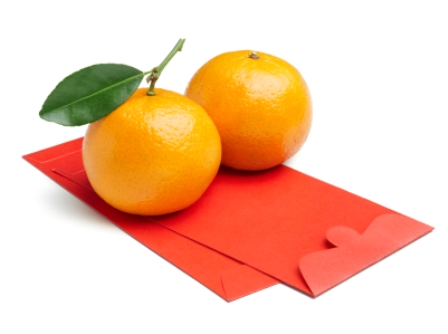Today, when Chinese people celebrate the New Year, there's a tradition to offer each other Mandarin oranges. As many sources say, the Mandarin oranges should be offered in pairs, since the phrase "a pair of Mandarin oranges" is a homophone to "the gold".
Obviously, 柑桔 [gan1 ju2] or 瓯柑 [ou1 gan1] are not homophones to 金 [jin1].
Some sources say that 柑 [gan1] is a homophone (or close) to Cantonese 金 [gam1], which does not sound very convincing for me.
So I suppose there's some older/dialectal pronunciation of one of these phrases (or both) that makes a closer match.
So the question is: What are the exact words of the phrase "a pair of Mandarin oranges" which form a homophone to "the gold"?
